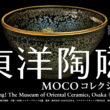As people use the screen for more and more time, the public has begun to pay attention to the methods of protecting the eyes, which has promoted the continuous growth of the lutein market.
Bethesda, MD (Business Northeast) – Eye protection is very important. According to statistics from the World Health Organization, the top three causes of vision loss in the world are cataracts (47%), glaucoma (12.3%), and age-related macular degeneration (8.7%). Among them, macular degeneration is related to lutein intake, so some people who use their eyes for a long time will buy lutein supplements.
Lutein products have been on the market for a long time, but it is still growing. The Data Bridge Market Research report pointed out that the global lutein-related product market was approximately US$365 million in 2017 and is expected to reach a market of US$433 million in 2025.
What is Lutein
Lutein is one of the more than 600 natural carotenoids that have been discovered so far. It is a photosynthetic pigment and is lipophilic, and usually does not dissolve in water. Lutein cannot be synthesized or produced by the human body. It is usually found in orange-yellow vegetables and fruits or some green vegetables and algae.
People must take lutein from food and distribute it to various tissues, especially for the retina. It is one of the important antioxidants in Macula lutea, which can form macular pigment and filter harmful blue light. Modern people eat fewer vegetables, and some manufacturers extract lutein from flowers to make supplements.
Lutein and Zeaxanthin
Dr. Johanna M. Seddon of Harvard University and colleagues found that taking 6 mg of lutein daily can reduce the risk of macular degeneration by 43%. Therefore, many lutein products on the market regard 6 mg as the reference value for the effective dose. In addition, the Isomer “Zeaxanthin” of lutein has also attracted the medical community’s attention.
According to a large-scale study by the National Institutes of Health, lutein and zeaxanthin are most suitable at a ratio of 5:1. The results of experiments with more than 4000 people show that supplementing with 10mg of lutein and 2mg of zeaxanthin per day has better benefits, which is more obvious for people who do not consume enough vegetables.
Although studies have shown that lutein is associated with the risk of macular degeneration, people must pay attention to intake. For example, Taiwan’s Ministry of Health and Welfare recommends that daily supplementation of lutein should not exceed 30mg. Excessive intake may cause a physical burden.
Relevant information:
Lutein for Preventing Macular Degeneration
Eye Care, To “Infinite Vision” and Beyond
NIH study provides clarity on supplements for protection against blinding eye disease











oUnDczQfJmLgRe
I don’t normally comment but I gotta tell thanks for the post on this great one : D.